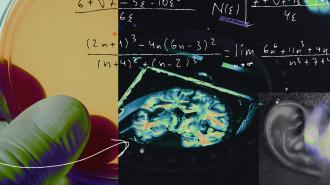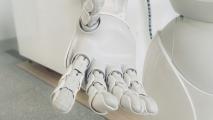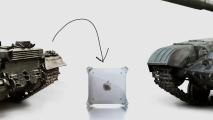Cyborg computer combining AI and human brain cells really works
A new biohybrid computer combining a “brain organoid” and a traditional AI was able to perform a speech recognition task with 78% accuracy — demonstrating the potential for human biology to one day boost our computing capabilities.
The background: The human brain is the most energy efficient “computer” on Earth — while a supercomputer needs 20 megawatts of power to process more than a quintillion calculations per second, your brain can do the equivalent with just 20 watts (a megawatt is 1 million watts).
This has given researchers the idea to try boosting computers by combining them with a three-dimensional clump of lab-grown human brain cells, known as a brain organoid.
The human brain is the most energy efficient “computer” on Earth.
What’s new? A team from the University of Indiana Bloomington (UIB) has now unveiled a new one of these hybrid systems, which it calls “Brainoware.”
After growing a brain organoid from stem cells, the UIB team placed the tissue on a plate covered in thousands of electrodes. They could then use traditional computing hardware to deliver electrical pulses to the organoid and record its responding neural activity.
To demonstrate how such a system might be used, the team converted 240 recordings of 8 Japanese speakers saying vowel sounds into electrical pulses. They then trained an AI to predict which person was speaking based on the neural activity of the brain organoid in response to the electrical stimulation.
Brainoware’s predictions improved steadily during the training, and after 2 days, it could predict the speaker with 78% accuracy.
Brainoware could be a precursor to more advanced biocomputing systems in the future.
The big picture: Brainoware was less accurate at speech recognition than a traditional computing system running an AI, and keeping the organoid alive required a CO2 incubator and other power-hungry resources.
In other words, the system isn’t an improvement on the tech we already have — but it could prove to be a key stepping stone on the path to more advanced biocomputing systems in the future.
“We wanted to ask the question of whether we can leverage the biological neural network within the brain organoid for computing,” lead researcher Feng Guo told Tech Xplore. “This is just proof-of-concept to show we can do the job.”
We’d love to hear from you! If you have a comment about this article or if you have a tip for a future Freethink story, please email us at [email protected].






